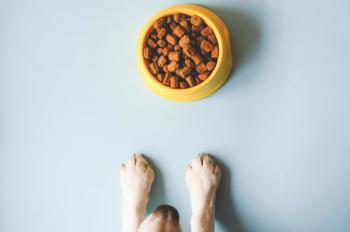
FDA investigates adverse events tied to Greenies; maker changes label
The vast majority of veterinarians are basically saying that they are safe.
KANSAS CITY, MO. — S&M NuTec plans to change the label of the nation's top selling canine dental treat Greenies in response to media reports that at least 13 dogs have died from complications tied to ingestion of the product.
As of March 1, FDA's Center for Veterinary Medicine (CVM) confirmed 35 complaints involving 34 dogs and one cat, prompting a regulatory investigation, says Linda Grassie, director of CVM's communications staff. According to reports, the product fails to break down and can become lodged in the dog's esophagus or intestine. Although the agency did not order the label change — which S&M NuTec terms a clarification — its inquiry into adverse reactions has driven a call for additional cases.
"We are looking for people to let us know if they have had problems with Greenies," Grassie says. "The way they can do that is to call it in to our Consumer Complaint Coordinators."
On the defense
While FDA studies the company's product, S&M NuTec reacts. During a Feb. 22 teleconference with media, Joe Roetheli, Greenies founder and chief executive officer, says the company financially compensated or reimbursed veterinary expenses for no more than 20 fatalities allegedly tied to the bone-shaped dog treats.
The company contends the product has an incident rate of one in 8.1 million sold. Greenies also earned the Veterinary Oral Healthcare seal of acceptance.
Roetheli also cited the company's cooperation with FDA and announced plans to enlarge and expand language on the packaging of the $340-million product line. The label will remind buyers to match the treats based on size of the dog. It also will alert owners to monitor their pets when feeding Greenies to ensure the animals are not "gulping" the treat.
But critics say such directives unfairly pass the onus to pet owners. Dr. Brendan McKiernan, a board-certified veterinary internal medicine specialist, has treated six esophageal cases and three intestinal obstructions related to the product's ingestion in the past two years in his Denver practice. Asking owners to monitor their dog's behavior is not feasible long term, he says.
McKiernan says, "You know darn well at some point an accident will happen. The guard is that you don't allow the animal to take something that is going to be a problem."
Veterinary reaction
Greenies makers suggest the opposite — that their product saves canine lives by reducing the risk of periodontal disease. In the teleconference with reporters, Roetheli says, "What the profession reports is that less than 8 percent of dog owners brush their teeth even twice a week; and they also report that even brushing every other day is not sufficient to maintain good gum health." Greenies reduces calculus buildup by 64 percent, Roetheli adds.
"The vast majority of vets are basically saying that they are safe; that dog owners need to do something for their dogs' dental, oral health," he says. "There's a lot of leading doctors out there that are advocating them, selling them and are very supportive of what we're doing."
Despite rising sales, which reached a reported $340 million in 2005, McKiernan disputes the contention.
"They talk about data that say they save dogs' lives, chewing for dental healthcare," he says. "But the pieces that obstruct are whole and hard. It's wrong to suggest otherwise and misleading the public."
Lawsuit for loss
In November, a New York couple filed a $5-million lawsuit against the company, claiming their Miniature Dachshund died last summer following surgery to remove an undigested piece of Greenies from its intestine.
Roetheli says he sympathizes with such loss.
"We realize it is a very emotional thing," he says. "We also know on the other hand that Greenies are saving a lot of dogs' lives because they're keeping them from getting periodontal disease."
Newsletter
From exam room tips to practice management insights, get trusted veterinary news delivered straight to your inbox—subscribe to dvm360.




